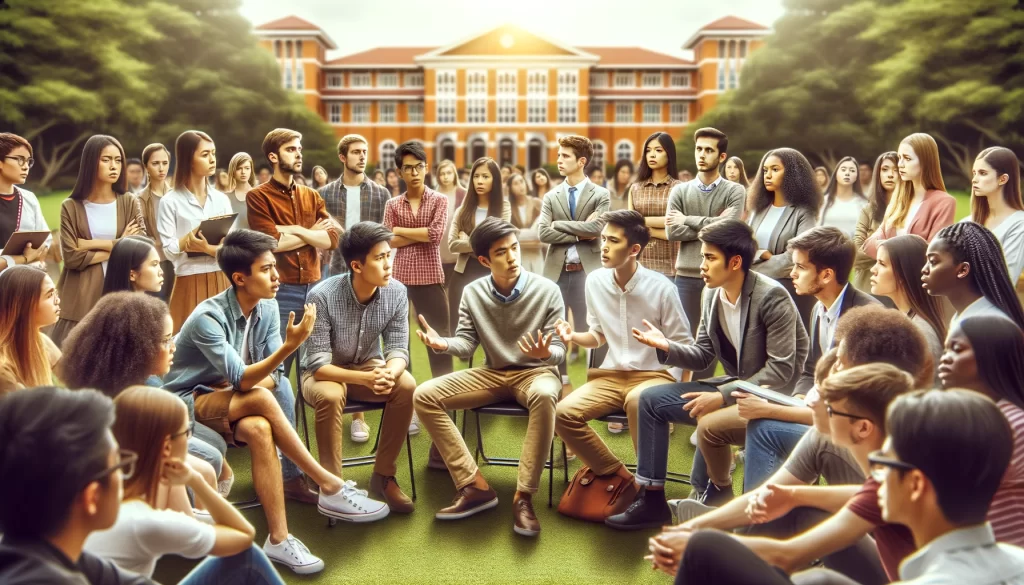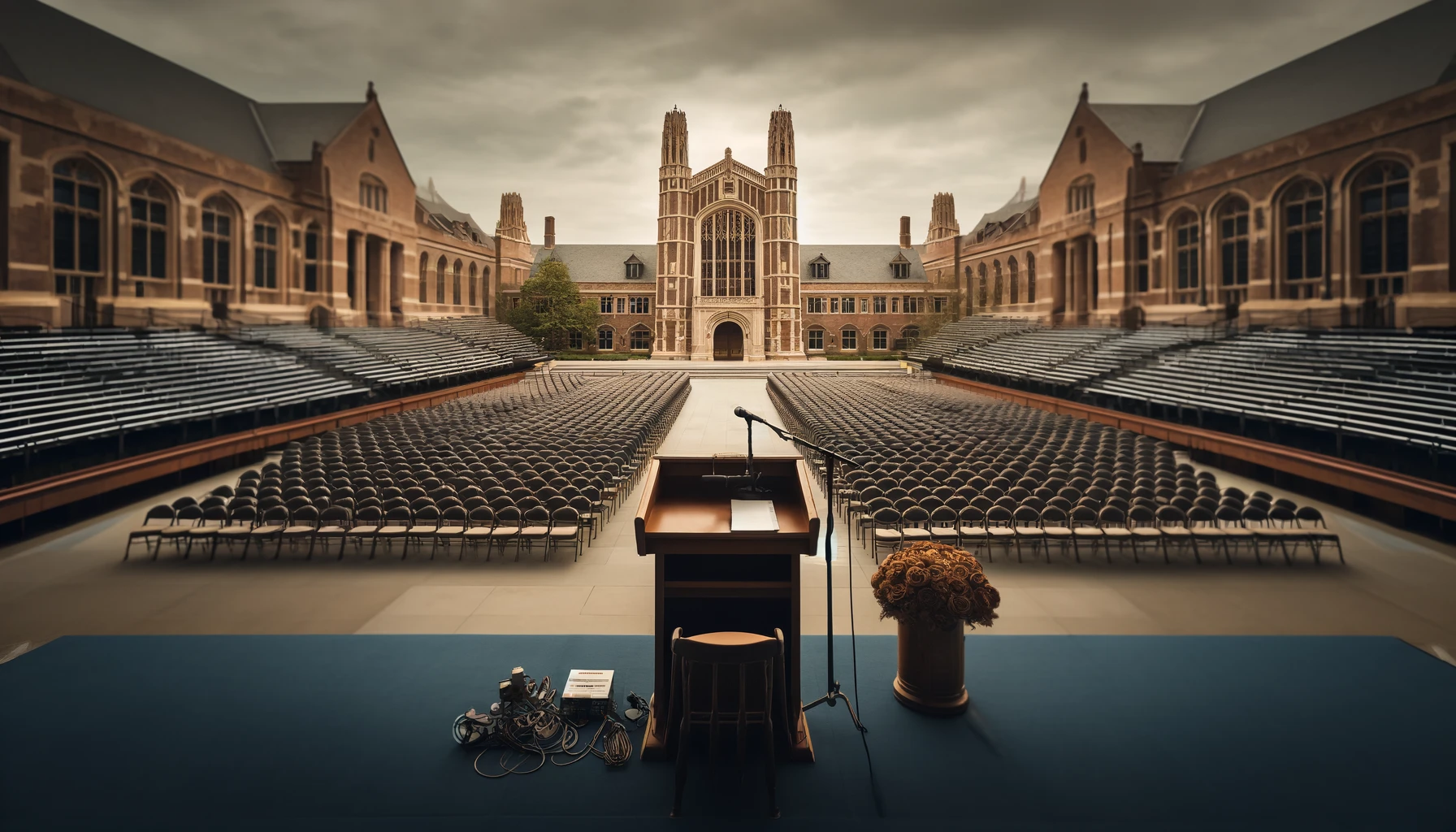The University of Southern California (USC) on Monday announced that the valedictorian will not speak at the upcoming commencement ceremony due to safety concerns.
Asna Tabassum was selected as this year’s valedictorian. However, her selection became contentious due to her social media posts related to the conflict between Israel and Palestine. Tabassum’s Instagram page featured a link to a slideshow encouraging people to learn about the situation in Palestine and offered criticism of Zionism. This content led to some student groups, such as Trojans for Israel, labeling it as “antisemitic bigotry” and calling for a reevaluation of her role at commencement.
The controversy over Tabassum’s social media activity attracted significant attention, with opinions divided both within and outside the university community. USC Provost Andrew Guzman, responsible for choosing the valedictorian, explained the reasoning behind the decision to exclude the valedictorian’s speech from the ceremony, stating, “After careful consideration, we have decided that our student valedictorian will not deliver a speech at commencement. While this is disappointing, tradition must give way to safety.” He further noted the external pressures affecting the university, saying, “The matter has grown to include many voices outside our campus community, and poses a security threat to next month’s event, which is anticipated to have 65,000 guests.”

Tabassum, who is of South Asian-American descent and practices Islam, expressed her frustration with the university’s decision. She stated that the controversy had led to “a campaign of racist hatred because of my uncompromising belief in human rights for all.” She also challenged the university’s explanation concerning safety, revealing that she was denied access to the school’s threat assessment and informed during a meeting with university leaders that there would be no increase in security measures, despite available resources.
“I am not surprised by those who attempt to propagate hatred,” said Tabassum. “I am surprised that my own university—my home for four years—has abandoned me.”
In defense of the university’s stance, Guzman affirmed USC’s commitment to free expression, stating, “USC supports free speech and dissent, so long as it doesn’t disturb university activities.” He also reassured that the university’s 300-employee Department of Public Safety, alongside officers from the Los Angeles Police Department, would be fully deployed at the commencement to maintain safety.
Guzman clarified that in selecting this year’s valedictorian from approximately 100 eligible candidates, the decision was made without regard to social media presence, focusing instead on the candidates’ academic and leadership merits.
This article is based on the following article:

Background Information
Understanding these aspects helps provide a comprehensive backdrop to the situation at USC, offering insights into why the decision to cancel the valedictorian speech was made and the broader implications it holds for the university community.
Valedictorian Tradition:
- The valedictorian is a student who has achieved the highest academic success in their graduating class. Traditionally, this student is given the honor of delivering a speech at the commencement ceremony, reflecting on the past and looking forward to future challenges and opportunities. This role is a mark of distinction and recognition of the student’s hard work and academic excellence.
Commencement Ceremony:
- The commencement ceremony is a formal event celebrating the completion of a course of study. It is an important and ceremonial occasion attended by graduates, faculty, families, and guests. The event typically includes speeches by notable figures, faculty members, and selected students such as the valedictorian.
Social Media and Public Perception:
- In today’s digital age, social media is a powerful platform for individuals to express personal views and share information. However, the content shared can also lead to public debates or controversies, especially if the topics are sensitive or divisive. Social media content can affect a person’s public image and can have real-world consequences, influencing how they are perceived by institutions and the public.
Israel-Palestine Conflict:
- The conflict between Israel and Palestine is a long-standing and highly complex geopolitical issue with deep historical, religious, and cultural implications. It involves disputes over land, sovereignty, and national identity, and is characterized by periods of violence and peace efforts. Due to its complexity and the strong emotions it evokes, opinions on this issue can be polarizing and lead to significant disagreement and tension.
Definitions of Antisemitism and Criticism of Zionism:
- Antisemitism refers to hostility, prejudice, or discrimination against Jews. Zionism is a nationalist movement that supports the re-establishment of a Jewish homeland in the territory defined as the historic Land of Israel. Criticism of Zionism often involves complex political opinions about the state of Israel and its policies, but can sometimes be perceived as antisemitic if it delegitimizes or demonizes Jewish self-determination. The distinction between legitimate political criticism and antisemitism can be contentious and is a subject of significant debate.
Freedom of Speech and Safety Concerns:
- Freedom of speech is a fundamental right that allows individuals to express themselves without undue censorship. However, this right can be balanced against safety concerns, especially in cases where speech might lead to violence or significant disruption. Universities often face the challenge of protecting free speech while ensuring the safety and security of their events and participants.
University Response to Controversy:
- Universities are institutions that not only provide education but also manage a large community of diverse individuals. In situations involving controversy, universities must navigate complex decisions that weigh the principles of free expression against community welfare and safety.

Debate/Essay Questions
- Can criticism of Zionism be distinguished from antisemitism, or are they inherently linked?
- Do you agree with USC’s decision? Why or why not?
Please subscribe to Insight Fortnight, our biweekly newsletter!
